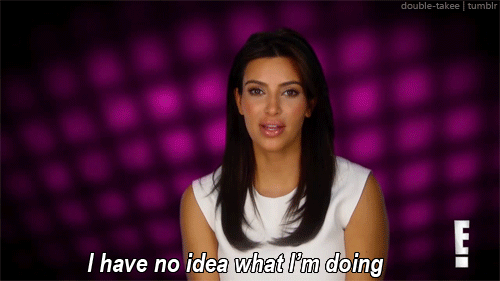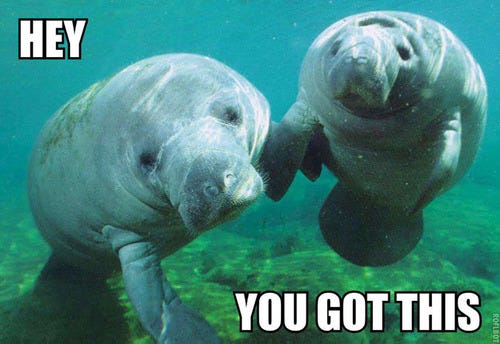
Freelancing or contracting sounds like a great thing to do, but it seems so many people have no idea where to begin. Never fear, we have four tips to get you started!
Increasingly when out-and-about I find my conversations end up with me answering the same set of questions. Sadly not the ones I want to hear (Will you take this corgi? And this affordably priced Auckland House?) but more from people that are stepping out from their 9–5 to start something for themselves. For a while before I joined BizDojo I too was one of these people. After a big stint working client-side I was bored, a bit jaded and not sure of my next steps. And of course I did the only thing a sane person would do — I left the security of a well paying job to go it alone with no idea of what I was doing.
Life is too short for dissatisfying work.
Beginning was hard. I knew that there were resources from the likes of IRD to help my journey, but I couldn’t locate them. I didn’t think about how I would sort my invoicing until it came to sending my first one, and don’t even get me started on ACC. So from my many mistakes, leaps of blind faith and freelancer adventures here are some things I learnt — and yes “how do I figure out what to charge” is included.
What do I need to do before I start?
Before you head out the gate you need to figure out a couple things. Usually around the kind of business you want to start, how you want to be paid and how you will manage those payments. Before you start out I highly recommend you read this Smart Business Guide by the IRD and this one for self employed people by ACC or this one for small business. Depending on the kind of work you do you may also want to seek out professional indemnity or public liability insurance. Also talking to your bank can be super useful.
My big piece of advice is from day one sort out a system for invoicing and payments, making sure the money from your business is going into a separate account with its own eftpos card for expenses. This will give you real clarity on what you are earning, and make it easier for you to reconcile business expenses and profit when it comes to paying the tax man!
How much do I charge?
Basically — charge what you are worth. If you are a student or a newbie to the industry you may have little to no experience using your skills. In this case you might need to do some low cost jobs to have a few successes under your belt first. However if your reputation proceeds you from a previous role, you can use this to catapult yourself into well paying work.
Basically, don’t think you are going to charge anyone $$$ an hour if there is no reason they should pay you that.
Creating a pricing strategy (not just one set price) will allow you to have the flexibility you need to price up work that works for a variety of clients.
For example if you are someone wanting to provide basic marketing and social media advice, put together a couple of package options which allow for blocks of time, revisions and strategy as well as a per-hour fee which is all inclusive, and a per-hour fee which is just the basics. This kind of thinking will cover most bases, and allow you to quote at one fee but pull back and provide a simpler more affordable service if budgets necessitate — all without discounting. Once you get going you will find if you discount once y’all gonna keep discounting.
If you have literally no idea how much you need to charge do some hunting online.
For creatives, this from the folks at The Creative Store is a really useful toolwhich outlines average per-hour rates by work type. Or you could do what I did, and just ask everyone around you what they charge. Sorta awkward but it worked.
Beyond this, you have to think about the bigger picture. Not just covering overheads, but building profit in from day dot. When you have a moment be sure to watch the video below from creative/business owner and all round good sort Simon Pound where he touches on this very point.
How do I get my first clients?
Starting on your own after being in your chosen industry for a while is always going to be easier than coming in cold. When I started freelancing I had already been working in digital for 10 years in a tight knit industry, so many of my initial clients were people I had met before along the way. That said, most of my favourite projects were picked up through connections I had made at events and meetups, and working with a really good agency.
If you are going to go down the agency route, have a good look around before you start. I am a big fan of The Creative Store and The Pond for creatives and digital work, and Rag Trade Recruitment for anyone looking for fashion work (including e commerce, content produciton, brand and marketing).
But even with an agency on your side and a bunch of contacts, you are gonna have to hustle. You will be at meet-ups and networking opportunities and actively reaching out and pitching work. You will also have to get really good at putting your hand up and saying “Hey I am awesome”, which for me was a pretty big learning curve.

Wrangling and pitching to new clients
Before you start pitching make sure you have the basics covered off. A good understanding of what you do and why you are the right choice for their business. Identify what makes you different from the rest, and sell your skill set. Set your website live with clear pricing, even if it is just a one pager. Rustle up some business cards to hand out at events, update your social media, craft a good LinkedIn page and get your case studies/references/past work examples/a portfolio ready.
Presenting a solution to a client? Give them a clear idea of the benefit and the problem you can solve for them, but also be clear around your IP. Only pitch what you feel comfortable sharing, and always with the provisor that the work remains yours until you are paid for it.
Harness your community
Thinking about the circles you run in can be really useful too. Put out a post on Twitter asking people to refer work, tell all your friends on Facebook you are starting something new and think about finding a space to work where you are around people that can help you get to the next step. Being in a collaborative space like BizDojo does not mean work is going to land on your plate BUT it can be super helpful. People in a community tend to want to support their own, like passing on a contact’s name looking for a freelance designer/social media person/PR person, casting their eyes over your fledgling website or simply being a sounding board for your new idea. Afterall, there are few things better than having someone who has been where you are, giving you the low down on what (and what not) to do.
Just do it
In the end accepting you will have to hustle, accepting you will have to actively pitch, and accepting you will have to call people is the road to success. Did I cold-contact some people? Yes. Did I get work? Yes.
When do I go to market?
When you are ready! Got your payment situation down? Sorted your bank accounts? Have a website? Know how much your ACC is gonna cost you? Got a good community around ya?
Basically work through the logical plan of everything and then when you feel comfortable — PUSH PLAY.
Remember, you should only start pitching to clients when you can demonstrate your ability and your success to date. This means being able to talk about successful work you have done in a prior role or smashing out some free/passion/personal projects before you get out there.
Are you reading this and thinking, “I am SO not ready for this right now!?”.

That is totally fine. It also does not mean you shouldn’t start freelancing or working for yourself at some point. Why not pick up a part time job/downsize your current role a bit and freelance around the sides? Or maybe you want to focus on this as something in 6–12 months.
If you want to do it, craft a path to make it happen — after all, life is too short for dissatisfying work.
